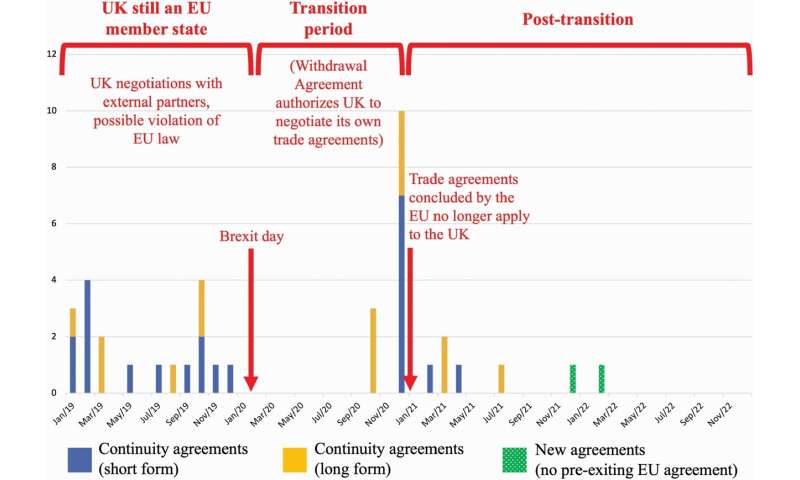Examining the limits of the UK's trade continuity agreements

The latest issue of the European Journal of International Law features an article written by Dr. Joris Larik, titled "Imitation as Flattery: The UK's Trade Continuity Agreements and the EU's Normative Foreign Policy."
The article analyzes the United Kingdom's "trade continuity program" after Brexit.
The promise that, once outside the European Union (EU), the UK would strike new, lucrative trade deals continues to be an essential part of the Brexiteers' narrative. What the UK was compelled to do first, however, was to conclude "roll-over" agreements to replace the trade agreements already made by the EU.
In the article, Dr. Larik argues that contrary to expectations, the UK's continuity program should be regarded as a success—for both the UK and the EU. In most cases, the UK managed to replicate to a very large extent the terms initially granted to the EU despite being a smaller market and despite challenging circumstances.
From the EU's perspective, the UK's continuity program can be regarded as a case of successful norm internalization and export. This first chapter of post-Brexit UK trade policy shows that even a country that has left the EU still legally commits itself and its partners to the EU's norms and values.
More information:
Joris Larik, Imitation as Flattery: The UK's Trade Continuity Agreements and the EU's Normative Foreign Policy, European Journal of International Law (2023). DOI: 10.1093/ejil/chad063
Provided by Leiden University